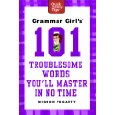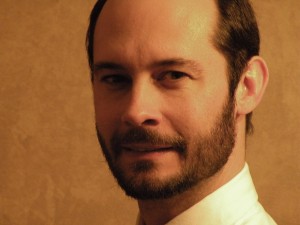A guest post by Mignon Fogarty![]()
Since becoming Grammar Girl six years ago, I’ve gradually come to the realization that English is a troublesome language. We do have some hard-and-fast rules: “A lot” is always two words, and we use semicolons a certain way. But a surprising number of words and punctuation marks swirl around us like rowdy schoolchildren shouting “Except when…!” and “Style choice!” When even language mavens disagree, what’s a writer to do?
We’ll figure it out by looking at an example.
Recently, Robert M. posted this question on the Facebook page for alumni of the Superstars Writing Seminar:
“Attention all you grammar aficionados: Do you have any objections to using “OK’ instead of “Okay’? Opinions please.”
“OK” or “Okay” Are Both All Right
“OK” is one of the words I wrote about in 101 Troublesome Words You’ll Master in No Time, and Robert was on the mark when he asked for opinions because English has two acceptable spellings for “OK.” Which one you prefer is a matter of opinion, and of course, in response to his request for opinions he got some strong ones, including a comment about slang and losing battles. Oh, the demise of our language!
Fiction Writers: Use “Okay”
However, if you’re a professional fiction writer, you should be relying on the Chicago Manual of Style, not your friends’ opinions. Chicago requires “okay.” End of story.
News Writers: Use “OK”
On the other hand, the conclusion is entirely different if you write press releases or articles for you local newspaper. The Associated Press Stylebook requires “OK.” End of story.
Know Your Style Guide
I’m routinely shocked by the number of e-mail questions I get from people who claim to be writers but obviously don’t own a style guide (or can’t be bothered to open it). “I remember that my fourth grade teacher said…” and “I prefer…” don’t cut it in the professional world. Traditional publishers have designated a style guide, and you should use it. Chicago is the standard for fiction. “Okay” is the only spelling that is acceptable. The Associated Press Stylebook is the standard for news writing. “OK” is the only spelling that is acceptable. The solution for a struggling writer? Know which style guide your industry uses and buy it.
When You Get to Decide
The time for opinions is when you’re writing for yourself or someone who hasn’t designated a style-when you’re writing blog posts, e-mail messages, and so on. When choosing for myself, I like to look at a word’s history, its etymology. That’s why I prefer “OK.”
The best evidence available points to a newspaper reporter coining the term in 1839. It was an abbreviation for a jokey spelling of “all correct”: “oll korrect.” Apparently, for a few years, it was trendy to coin these kinds of misspelled abbreviations, but “OK” was the only one that survived because it was used in slogans for Martin Van Buren’s presidential campaign.
I confess that I’m so enamoured with the “OK” etymology that I insist on “OK” instead of “okay” in my books, even though my publisher follows Chicago style. I’m probably being foolish picking a fight over this one little word, but we all have our foibles. Since my books are about language, I feel like my publisher should give me some leeway on the language, and they seem to agree-or at least they don’t think it’s worth the energy to resist. But the advice I give to any other writer, especially writers who are just starting out, is to follow your industry’s style. It’s the safest, wisest choice.
Guest Bio: Mignon Fogarty is better known as Grammar Girl and is the author of eight books on language, including her new book, 101 TROUBLESOME WORDS YOU’LL MASTER IN NO TIME.


